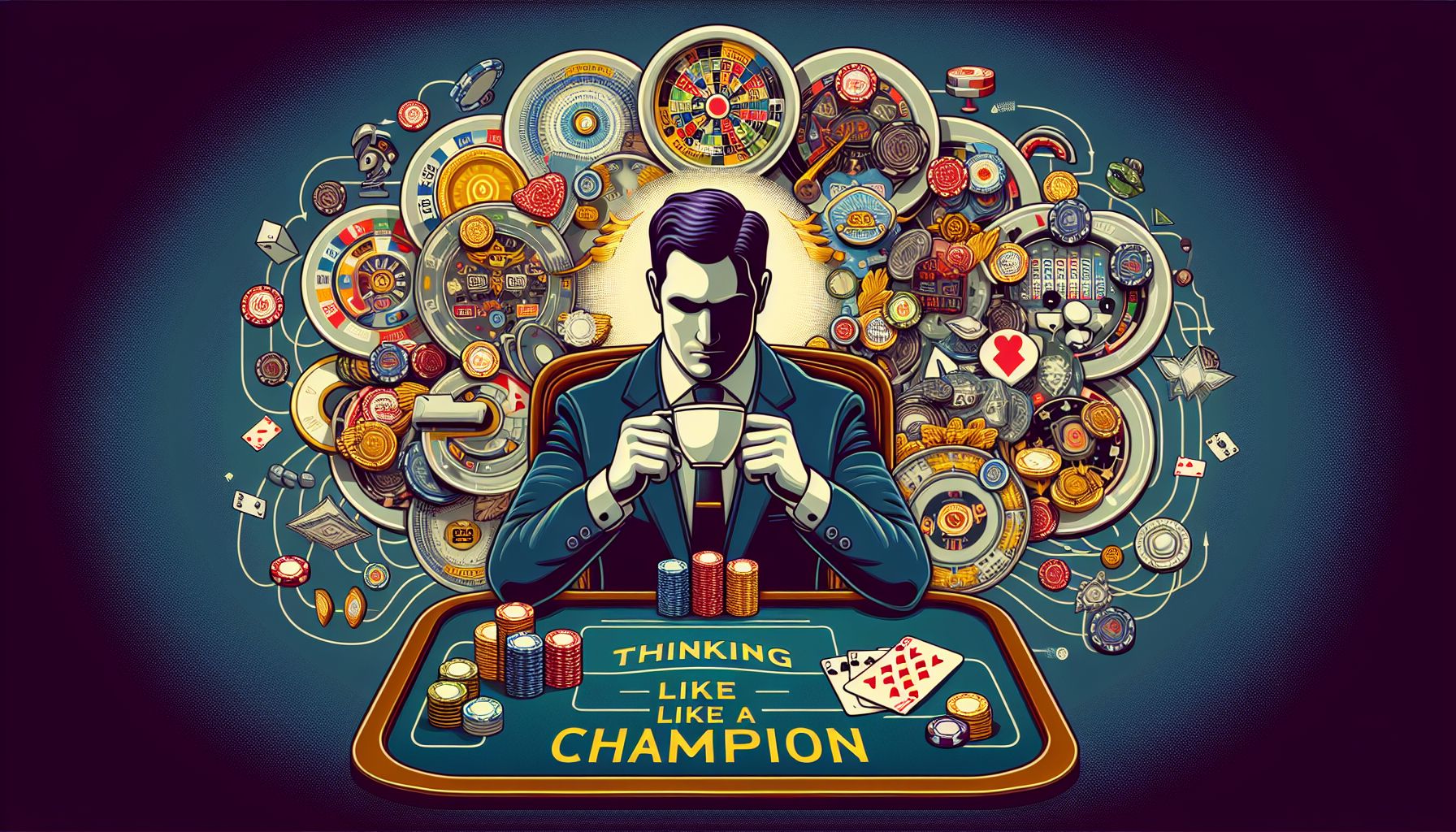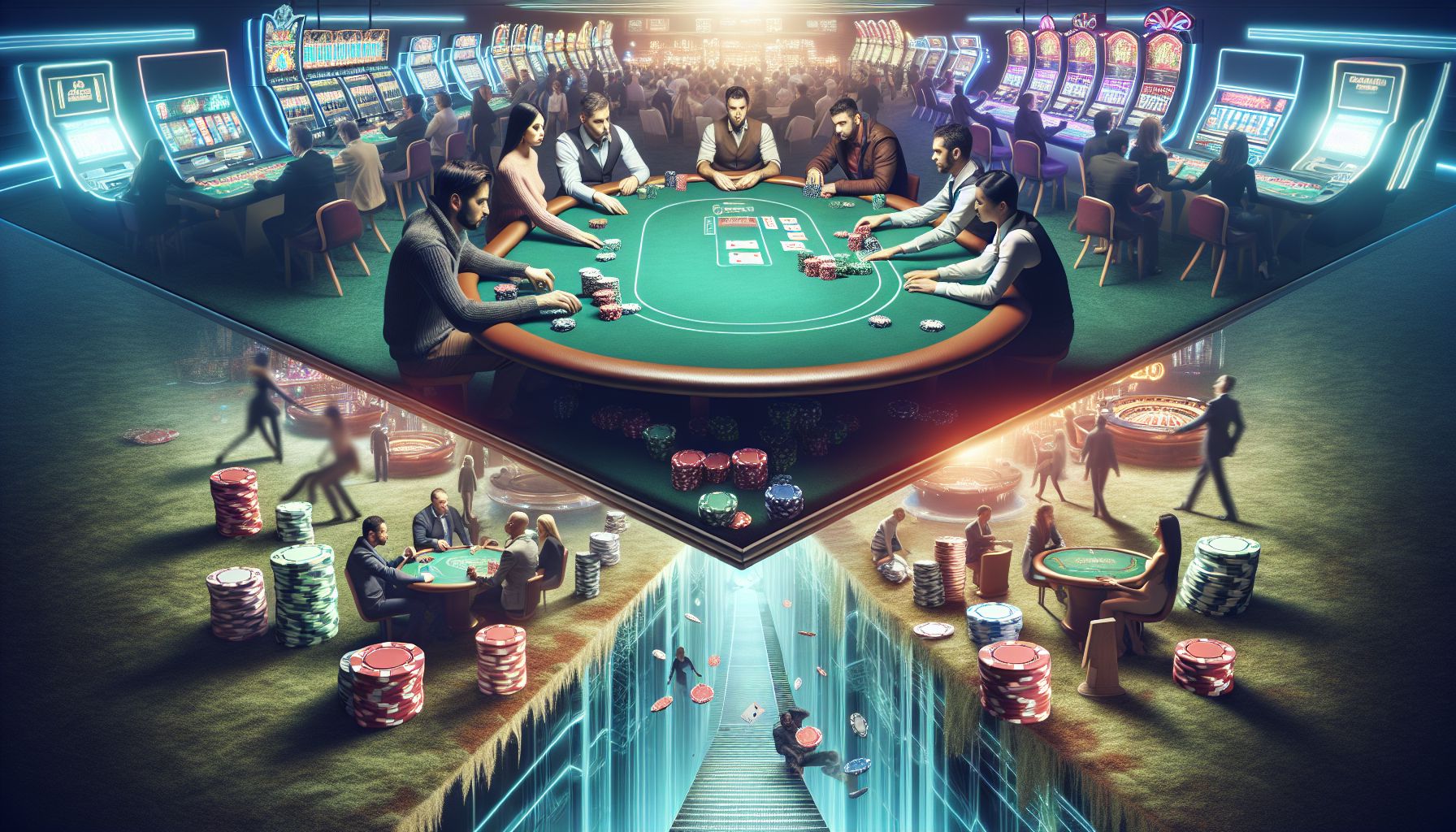If you’ve ever strolled into a casino, The House Edge Navigating you doubtlessly have noticed the flashing lights of the slot machines, the energy at the roulette tables, and the hubbub around the craps pit; an electric atmosphere reverberating with noise, laughter, and cheers. However, if you’re a keen poker player, there’s a good chance you’ve moved past this razzle-dazzle to enter a somewhat quieter, yet intense, world: the poker room.
Poker rooms house an exciting realm of decision making, strategy, and psychological manipulation. Nonetheless, as with all casino games, there’s an invisible but essential principle at play: the “house edge”. Understanding this concept is crucial for any poker player keen to maximize their winning odds and minimize losses. But what is the house edge, and how does it impact your game of poker? Let’s dive in.
Introduction to the House Edge
The house edge is a term used in gambling to describe the mathematical advantage that the gambling game, and thus the casino, has over you as you play over time. This edge results in a guaranteed return to the casino over time, while the player is mathematically guaranteed to lose. However, in poker, the concept of the house edge takes a unique turn. Let’s unravel this intrigue.
The Poker Exception
Poker, unlike most casino games, is a contest of skill, wit, and strategy, as much as it is a game of chance. Players compete against each other, not against the house. Normally in gambling, the house edge would determine the odds of winning for the players. However, poker deviates from this norm by only taking a ‘rake,’ a nominal fee from each pot that goes to the house.
This lends poker its distinctive dynamic when compared with other casino games. Rather than try to beat an inbuilt mathematical edge, players need to overcome their opponents. Your opponents’ skill levels, behaviors, and strategies comprise a fluctuating, human ‘house edge’ you must navigate carefully.
Nevertheless, the traditional concept of a house edge is not entirely absent in casino poker. Here’s how it applies.
House Edge in Casino Poker
While poker players are competing against each other, the casino isn’t hosting games for pure entertainment. The house has to earn, and it does so through the rake, as mentioned earlier, and through tournament entry fees.
1. The Rake
In cash games, the casino takes a small percentage of every pot, known as the ‘rake’. Usually, this percentage is between 2.5% to 10%, with a pre-set maximum amount that the house can rake from a single pot. The exact amount varies from one casino to another, and it can significantly impact your potential winnings.
For instance, if you’re playing a $1/$2 game with a 10% rake up to a maximum of $4, a $40 pot earns the casino $4, and only $36 goes to the winner. Now, The House Edge Navigating imagine this scenario repeating over an extended gaming session, and you can appreciate the long-term impact of the rake on your winnings.
2. Tournament Fees
In poker tournaments, the house edge manifests in the form of entry fees. When you enter a poker tournament, you will notice that the buy-in is split into two parts: a portion that goes into the prize pool, and a smaller part that goes to the casino as an entry fee.
For instance, if a tournament buy-in is advertised as $100 + $20, it means that $100 goes into the prize pool, and $20 is the house fee. That’s a 20% house edge upfront.
Mitigating the House Edge
Understanding the house edge in poker is a critical first step towards building a strategy that can help you navigate this harsh reality. After all, every dollar paid in rake or entry fees is a dollar that you can’t add to your stack. Here are a few suggestions on how to mitigate the effects of the house edge.
1. Shop Around for the Best Rates
Different casinos have different rakes and tournament fees. While they might not vary drastically, even a small percentage can make a meaningful difference over the long haul. So, shop for a casino or online platform offering the best rates.
2. Hone Your Skills
Because poker is a skill game, improving your abilities is your best defense against the house edge. The better you can play, the more likely you are to win, which can help to offset the house’s take.
3. Respect Bankroll Management
Bankroll management is crucial to long-term poker success. It can help you survive the periods when you’re running bad and ensure you’re properly bankrolled for the games you are playing, thus reducing the impact of the rake.
Conclusion
Playing poker in a casino is not just about fascinating strategy and human psychology; the concept of the house edge plays a crucial role. While the house edge in poker manifests differently than in other games, it is a reality we must navigate tactfully to safeguard our stacks and maximize winnings over time.
By understanding the rake in cash games, the entry fees in tournaments, The House Edge Navigating and employing prudent strategies like best rate shopping, skill enhancement, and bankroll management, you can potentially mitigate the pitfalls of the house edge. Win or lose, poker should be seen as an enjoyable experience, and navigating the house edge is merely a part of that thrilling journey. Good luck and play smart!









